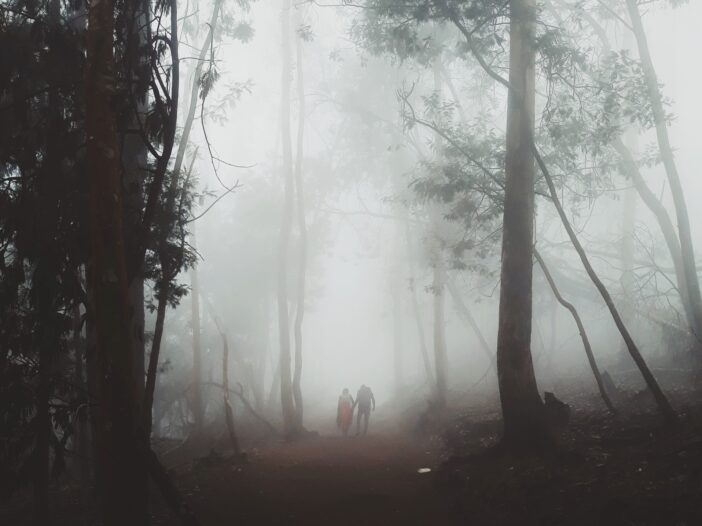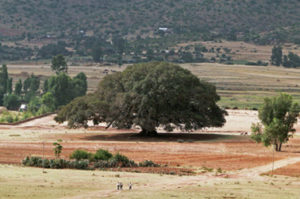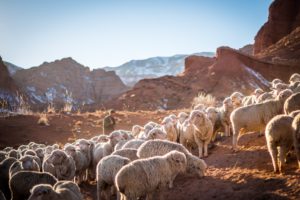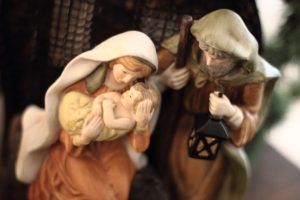
In the movie The Princess Diaries, San Francisco teenager Mia Thermopolis tells her grandmother, “My expectation in life is to be invisible. And I’m good at it.”
She ultimately had to choose between what she wanted to be versus what she was called to be.
The same was true for Zacchaeus.
The price of visibility
For years, he enjoyed what he wanted to be: very wealthy. He had risen in the ranks to chief tax collector (Luke 19:2). But it came with a price: betraying his Jewish roots for Rome’s protection.
The position of tax collector was up for bid. Whoever said they could collect the most taxes got the job. They got rich by imposing a substantial fee on top of Rome’s taxes and pocketing the excess.
As chief tax collector, Zacchaeus employed Jews under him to do actual collections. Notably, he was situated in Jericho—at the crossroad of the King’s Highway and the Judean Ridge Route. Jericho was also the location of Herod’s winter palace/retreat. All pilgrims coming from the north to Jerusalem would pass through Jericho. Zacchaeus would have been responsible for collecting road tolls, import/export fees, and more from travelers. Much of that went straight into Herod Antipas’s treasury and the emperor’s coffers.
Zacchaeus ingratiated himself to the Romans. But Jewish religious leadership considered tax collectors unclean, unfit to enter the Temple, and spiritually unredeemable. The Sanhedrin (the Jews’ legal system) rejected tax collectors’ testimonies.
The risk of invisibility
Yet one day Zacchaeus finds himself at a crossroad of what he wants to be versus what he’s called to be. Something tugs on his heart to see Jesus. He figures the only way he can do that is to hide in a sycamore-fig tree.
That was a humbling, countercultural move. Something deeper than curiosity drove him to risk that for some fleeting, indirect contact with Jesus.
Scholars generally agree Zacchaeus climbed a ficus sycomorus, a sturdy tree about forty feet high. It has a short, stout trunk; wide, low-slung branches; and dense foliage. Easy to climb, perfect to hide in.

Rome’s protection surrounded Zacchaeus, but he chose a leafy perch for a different kind of protection: invisibility.
Being invisible has its advantages. No one knows your business. No one can see your heart.
Zacchaeus thought he could safely watch from the sidelines while maintaining his current lifestyle and values. But Jesus called him out of the safety of invisibility.
Jesus calls us to face Him and all the parts of our lives we don’t want anyone to see.
Yet He doesn’t call us into judgment. He calls us into communion with Him. Instead of condemning Zacchaeus, Jesus said He was going to stay the day with him at his house.
That would have been long enough to eat at least one meal with Zacchaeus. In that culture, breaking bread with someone was an act of fellowship, a sign of acceptance—identifying with and trusting the person. In short, it meant you were on good terms with each other. When was the last time Zacchaeus could remember being tolerated, let alone being on good terms with anyone?
Accepted and visible
We can draw many takeaways from this. I’ll mention five:
- The all-knowing Lord of Hosts sees you when you think you’re invisible.
God knows you. - Christ deals with you from a position of compassion.
He cares for you. - Christ’s confrontation doesn’t break you. (Isaiah 42:3) Instead, He invites you to fellowship with Him forever.
- No one deserves Christ’s invitation, but He offers it freely.
- When Christ calls you, it produces joy.
Luke 19:6 says Zacchaeus scrambled down from that tree “gladly.” The word literally means “rejoicing.”
When you’re in right relationship with Him, God infuses you with joy.
Jesus called the chief tax collector from what he was into what God intended for him to be.
Just as He does for us.
Just as we should do for others.
That’s radical love.
That’s why we have hope!
Never miss a post!





Leave a Comment